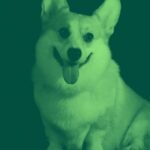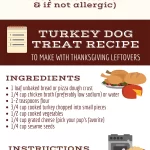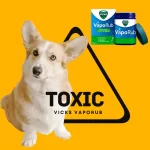Can Eating Poop Kill Your Dog
The Shocking Truth: Eating Poop Can Kill Your Dog
Dogs are well-known for their love of eating almost anything. From scraps of food to toys and even socks, some dogs seem to have an insatiable appetite for whatever they can get their paws on. However, there is one thing that many dogs like to eat that can be extremely dangerous, even deadly: poop.
Yes, you read that right. Eating poop, also known as coprophagia, is a common but risky behavior among dogs. In this article, we will explore the dangers of eating poop, how it can affect your dog’s health and behavior, and what you can do to prevent it.
What Is Coprophagia?
Coprophagia is the medical term for the act of eating feces. This behavior is not limited to dogs; many other animals, including rabbits, horses, and primates, engage in coprophagy. However, it is most common among domesticated dogs, especially puppies.
There are several reasons why dogs might eat poop. Some dogs do it out of boredom or curiosity, while others may be trying to clean up after themselves or their environment. Some dogs might also eat poop if they are malnourished or have a digestive disorder that makes them crave certain nutrients.
However, regardless of the reason behind the behavior, eating poop can be harmful to your dog’s health and well-being.
The Dangers of Eating Poop
So, what exactly are the risks of eating poop? First and foremost, feces can contain harmful bacteria and parasites that can cause serious infections in your dog’s digestive system. These pathogens include E.coli, Salmonella, Campylobacter, Giardia, and roundworms.
If your dog ingests these pathogens by eating poop or licking contaminated surfaces or objects, they can develop symptoms such as diarrhea, vomiting, fever, and dehydration. In severe cases, the infection can spread to other organs and cause organ failure or sepsis.
Moreover, eating poop can also lead to behavioral issues in dogs. Some dogs might become more aggressive or anxious if they are scolded or punished for eating poop, while others might become obsessed with the behavior and refuse to stop even if it harms them.
In addition, eating poop can also be a sign of underlying health problems in dogs. For example, some dogs with pancreatic insufficiency or malabsorption syndrome may eat poop to compensate for their inability to absorb nutrients from their food.
Preventing Coprophagia in Dogs
Now that you know the risks of eating poop, you might be wondering how you can prevent your dog from engaging in this behavior. Here are some tips:
1. Keep your dog’s environment clean and free of feces. This means picking up after your dog immediately after they defecate and disposing of the waste properly.
2. Provide plenty of exercise and mental stimulation for your dog. Boredom and stress can contribute to coprophagia, so make sure your dog gets enough physical activity and playtime.
3. Feed your dog a balanced and nutritious diet. Make sure your dog is getting all the essential vitamins, minerals, and nutrients they need from their food. If you suspect that your dog has a digestive disorder or nutritional deficiency, consult with your veterinarian.
4. Train your dog to “leave it” or “drop it” on command. This way, you can redirect their attention away from poop or any other object that they should not be eating.
5. Consider using taste deterrents or repellents on feces or surfaces that your dog is attracted to. These products contain bitter or unpleasant flavors that can discourage dogs from eating them.
Conclusion
In conclusion, eating poop can be a dangerous and potentially deadly behavior for dogs. As a responsible pet owner, it is your job to prevent your dog from engaging in this behavior by providing a clean and healthy environment, a balanced diet, and proper training and exercise. If you notice any signs of illness or behavioral issues in your dog, contact your veterinarian immediately. Remember, prevention is always better than cure when it comes to your furry best friend’s health and happiness.



